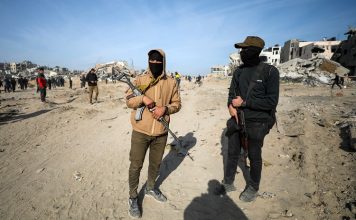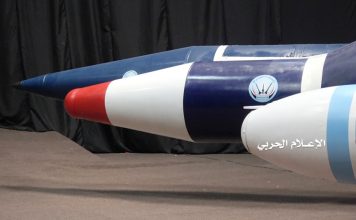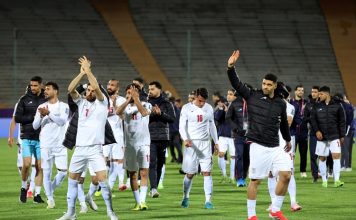On Sept. 16, Masha (Zhina) Amini, a 22-year-old ethnic Kurd, died in hospital because of injuries she had reportedly suffered while in the custody of morality police (guidance patrol) in Tehran three days earlier.
The morality police detained Ms. Amini, a native of Saqqez, in the western province of Kurdistan, outside a metro station in Tehran on Sept. 13 for allegedly violating the Hijab Law.
[aesop_image img=”https://kayhanlife.com/wp-content/uploads/2022/09/mahsa.jpg” panorama=”off” credit=”Mahsa Amini. KL./” align=”center” lightbox=”on” captionsrc=”custom” captionposition=”left” revealfx=”off” overlay_revealfx=”off”]
According to eyewitness accounts, Amini was beaten while being transported in a morality police van. She died in hospital on Friday, Sept. 16, after spending three days in a coma.
Her death sparked a public outcry and protests which have grown and spread to cities and towns across the country since Sep. 17.
Kayhan Life has interviewed a number of individuals about their experience with the morality police.
Since coming to power in 1979, the Islamic Republic has used mandatory hijab and morality police as tools to control, harass, terrorize, and imprison its citizens, particularly girls and women.
TIMELINE – Iranian Unrest Leading Up to Mahsa Amini’s Death in Police Custody
A university student spoke to Kayhan Life about her sister’s encounter with the morality police. She was pregnant when the incident occurred.
“My sister and I went to a shopping mall in Shahrak-e Gharb [upscale Tehran neighborhood] last year,” she said. “On the way back, we were stopped by the morality police who took us to [their headquarters] in Vozara [district.] I told them about my sister’s pregnancy and asked them to release her and keep me in her place. My sister was pregnant, but her belly had not started showing yet. A female member of the morality police hit my sister’s belly with her elbow, saying, a ‘loose woman like her should not become a mother. She does not deserve it.’ My sister hemorrhaged an hour later. We called emergency services, who took my sister to a hospital. Unfortunately, my sister had a miscarriage.”
A 38-year-old woman who had a similar experience told Kayhan Life: “I underwent emergency surgery last summer. I was walking to my doctor’s office. I wore an open-front long overcoat, keeping my head covered with a long scarf. The morality police stopped me, asking if I had been detained before or had a prior record, to which I answered no. They then asked me to sit in the van and give a statement. They took my name and asked for my national identity card. As soon as I sat in the van, they closed the doors and took my headphones. I asked what the problem was, and that I had a doctor’s appointment. Another girl in the van smiled and said they had detained her for the same reason. They took us to Vozara. After crying for a long time and experiencing enormous stress, they finally let me go, but not until my family and I signed a confession.”
A hairdresser shared her daughter’s experience with the morality police in Vanak Square, a mixed residential and commercial district in Tehran.
“Vanak Square is a busy area because there are many health clinics and doctors’ offices in and around that area,” the woman told Kayhan Life. “The morality police detained my daughter a few months ago as she was awaiting Snapp [a ride-sharing car] to pick her up near the square. They said her silk headscarf did not cover her ears. It had been three days since her breast surgery. She could hardly lift her arm. However, they insisted she write and sign a confession. She had bruises under her eyes and felt weak. She told them that she had had an operation and asked them to let her go home. They ignored her pleas, saying she could not leave until they gave her another scarf to wear on her head. They also told her she could leave, but only after they had run a background check to see if she had any prior violations. After placing her in the van, they seized her mobile phone and took her to Vozara. I secured her release after a few hours and with great difficulty.”
[aesop_image img=”https://kayhanlife.com/wp-content/uploads/2020/12/2020-12-06T095915Z_1442257249_RC2LHK9MO7F4_RTRMADP_3_HEALTH-CORONAVIRUS-IRAN-scaled.jpg” panorama=”off” credit=”Women walk at a bazaar in Iran. REUTERS./” align=”center” lightbox=”on” captionsrc=”custom” caption=”Amnesty International France activists attend an action in support of women’s rights defender Yasaman Aryani and human rights activists imprisoned in Iran as part of the International Women’s Day, near the Iranian Embassy in Paris, France, March 8, 2021.” captionposition=”left” revealfx=”off” overlay_revealfx=”off”]
[aesop_image img=”https://kayhanlife.com/wp-content/uploads/2022/09/shahrivar-1401.jpg” panorama=”off” credit=”#IranProtests, September 2022. KL./” align=”center” lightbox=”on” captionsrc=”custom” captionposition=”left” revealfx=”off” overlay_revealfx=”off”]
An employee of a private company shared her experience with Kayhan Life.
“Towards the end of April, the morality police stopped my mother and me in Saadat Abad Square and took us to Vozara,” she said. “I was wearing a long shirt under an open-front long overcoat. I had no socks on. They shouted profanities at my mother when we were at Vozara, saying, ‘damn your degenerate husband who lets you and your daughter roam the streets.’ My mother kept telling them that she was a teacher and that they should stop using profanities. They ignored her. My mother started crying after a few minutes. I asked them to stop, explaining that my mother had diabetes and her sugar level would go up if she felt unwell. They continued mistreating her. Stress got to my mother, causing her sugar level to rise, and she fell ill. They called an ambulance to take her to a hospital, but detained me until they could find other clothes for me to wear.”
Another university student told Kayhan Life: “The morality police detained me near Haft Tir [formerly 25 Shahrivar Square] a few months ago. They pushed me into a morality police van. They also detained another lady with a proper hijab but who was not wearing any socks. The woman was worried about her baby, because she had last breastfed the baby that morning before leaving the child with her mother. The morality police ignored her pleas. They took our mugshots when we got to Vozara as if we were criminals. The woman asked a girl wearing trainers if she could have her socks. They released the woman after she wore the other girl’s socks.”
The same university student spoke about her sister’s arrest.
“A week after my sister and her husband got married, the morality police detained them near Shahr-e Farang cinema [in Tehran], accusing them of being boyfriend and girlfriend, and took them to Vozara,” she said. “They held my brother-in-law in a basement and slapped him a few times. The morality police refused to believe they were married even after my mother took their birth and marriage certificates to the station. They finally released them after six years.”
A 55-year-old woman shared her experience with the Islamic Revolution Committees in the 1980s.
The Committee, short for the Islamic Revolution Committees, was a law enforcement force in Iran, operating under the auspices of the Ministry of Interior. It enforced Islamic regulations and moral standards around social behavior.
“I was 20 years old in 1986 and had not entered university yet,” the woman recalled. “My mother had told me that my father used to study in Saei Park [in Tehran] when he was young. So I took a bus to Park Saei to study. A Committee member confronted me after I had been walking and studying in the park for an hour. They ridiculed me, asking if I had gone to the park to ‘make out with boys.’ That was the first time I heard the phrase ‘make out with boys.’”
Speaking about her mother’s experience, the woman said: “In the early days of the [1979] Revolution, Committee units detained people and dipped their hands and feet in tin buckets filled with cockroaches, or would cut their hands with razors, or cut their hair, but they just kill them nowadays.”
[aesop_image img=”https://kayhanlife.com/wp-content/uploads/2021/03/2021-03-08T104909Z_1993267558_RC2Y6M9OFZII_RTRMADP_3_WOMENS-DAY-FRANCE-PROTEST-scaled.jpg” panorama=”off” credit=” REUTERS/Gonzalo Fuentes” align=”center” lightbox=”on” captionsrc=”custom” caption=”Amnesty International France activists attend an action in support of women’s rights defender Yasaman Aryani and human rights activists imprisoned in Iran as part of the International Women’s Day, near the Iranian Embassy in Paris, France, March 8, 2021.” captionposition=”left” revealfx=”off” overlay_revealfx=”off”]
Another woman spoke about the Islamists’ treatment of people shortly after the Revolution.
“Young people should not think that the Islamic Republic just appeared and established its rule,” she noted. “During the early years, as is the case now, they asserted themselves through bloody oppression. The summer of 1988 was volatile. There were protests all the time by various groups outside Tehran university. One day, I was on a bus heading to 24 Esfand Square, which later changed to Enghelab Square. The bus was stuck in traffic. Suddenly two or three Islamist students, foaming at the mouth, climbed onto the bus, and reached through an open window to grab a girl’s hair around her shoulder. They were shouting ‘either headscarf or get hit in the head.’ The bus driver sped up and got rid of them.”
“A few years later, in the 1980s, I witnessed a few officers wearing chador [full body cover], commonly known as ‘crows,’ detain a woman who was wearing red lipstick in the [Haft] Hose Narmak area. They ordered the woman to wipe the lipstick off while spitting in her hand,” she added.
A retired teacher living in Tehran told Kayhan Life: “In 1979, the [Islamic] Revolutionary Committee headquarters was in Baharestan Square near the Majlis [Iranian Parliament.] They had assigned several soldiers to detain girls who did not wear headscarves or socks. They also detained boys who wore jeans or t-shirts or had long hair. One early morning, I was walking to work wearing a skirt and a jacket when soldiers from the Committee stopped me and grabbed my arm. They wanted to take me to Baharestan. I gave them a good beating. That was a source of great laughter for my family and me for a long time.”
“The head of the Baharestan Committee was Mehdi Taleghani then. He was the son of Ayatollah [Seyyed Mahmoud] Taleghani,” she said. “Later on, I had several bad experiences with them. I carry great pain because of the humiliation I and many others suffered at the hands of this regime.”
“I am 60 years old now. I do not forget or forgive,” the woman added.









